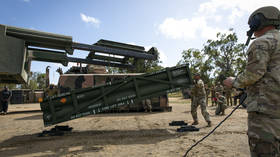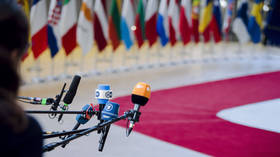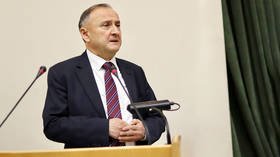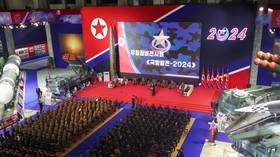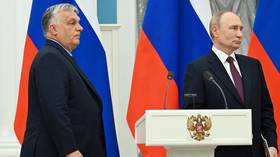Drugs, alcohol & offended insider: 5 reasons why Sochi doping allegations don't hold up
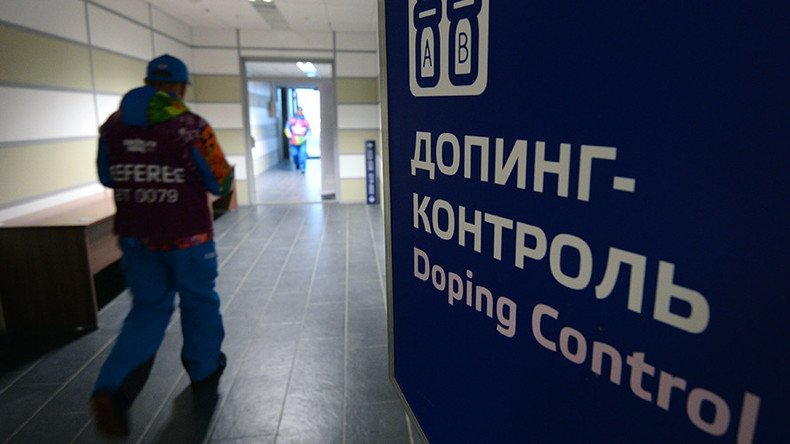
Russian athletes and sporting officials have blasted an uncorroborated report by the New York Times, in which the country’s Olympic champions were accused of doping during the Sochi 2014 Games by the sacked head of Russia’s anti-doping laboratory.
In the article, former laboratory chief Grigory Rodchenkov claimed that at least 15 Russian Olympic medal winners were part of the country’s supposed wide-scale doping program.
READ MORE: Russia may sue NYT over Sochi Olympics doping allegations
The scandalous article described how Rodchenkov had allegedly been switching the athletes’ samples as he dumped “tainted” urine into a nearby toilet, washed out the bottles, dried and filled them with “clean” samples.
Russia had no influence on doping control in Sochi
It was simply impossible for the Russian side to have organized a “doping program” to dominate the home games, like Rodchenkov claimed, due to the significant number of international experts present at all stages of doping-control procedures, says Russia’s Deputy Sports Minister, Yury Nagornykh.
#Sochi2014 Olympics doping allegations (LIVE UPDATES) https://t.co/5UA9z5OMzppic.twitter.com/umays6YEOH
— RT (@RT_com) May 13, 2016
“Around a third of all inspectors on doping stations were foreigners. Russia had no chance to influence the system of doping control procedures, sampling and transportation of the samples in Sochi. After the Games, all samples have been tested for safety, sealed and sent to Lausanne. Absolutely all samples are stored there to this day,” Nagornykh said at a press-conference in Moscow.
Booze and sporting wins don’t match
The Russian Olympic champions found Rodchenkov’s claim “he dissolved the drugs in alcohol – Chivas whiskey for men, Martini vermouth for women” laughable.
“If you drink such a cocktail once, it won’t help, will it? One needs to drink it every day… during the Olympic Games,” speculated skeleton champion at Sochi Games, Aleksandr Tretyakov. “My competition started on the seventh day [of the Olympics]. I would have been drunk.”
LIVE: 'Allegations of a distorted mind’ - Russian gold medalist slams #Olympic drug claims https://t.co/v6frE4HYSLpic.twitter.com/aDwrOPvtrg
— RT (@RT_com) May 13, 2016
“A person, who mixes cocktails, can only be called a barman. And the pilot, who controls the bob in bobsleigh, must concentrate on the circuit like a driver in a car,” Aleksandr Zubkov, two-time Sochi 2014 champion said, adding that Rodchenkov had no proof to back his accusation against Russian athletes.
“Athletes drink Chivas before competing? I can’t take it seriously,” said cross-country skier Sergey Ustiugov, who represented Russia in Sochi.
Doping sample kits safe, tested & certified by independent lab
The Swiss company which produces self-locking kits for doping samples in international competitions including Sochi Olympics, told RT that their products “are secure if used according to our users’ instructions.”
“The kits meet highest product standards and are checked several times before they leave our house,” Andrea Berlinger Schwyter, head of Berlinger Special, stressed. “The security system is tested and certified by a neutral, independent laboratory and is specially adopted to the general doping control procedures.”
Legkov didn’t even train with Russian team
One of the athletes accused by Rodchenkov of doping – cross-country skier Aleksandr Legkov who won gold in the 50-kilometer freestyle race in Sochi – said that he could not have possibly been part of the alleged Russian doping ring as he was training for the Games in Europe with foreign coaches.
During his training, WADA doping officers tested him a total of 33 times and all the samples were clean, Legkov stressed.
#WADA to probe Russian #doping allegations related to 2014 Sochi Olympics https://t.co/fj0lbn0NBEpic.twitter.com/vzGRaVhrUI
— RT Sport (@rtsportnews) May 10, 2016
Rodchenkov sounds like offended man settling personal accounts
Russia’s Sports Ministry called Rodchenkov’s accusations “shocking” and highlighted that the allegations are coming from a man who “was relieved of his position for meddling with the samples” and that ”his statements may be nothing more than an attempt to settle personal scores.”
LIVE: 'You have to be a crazy kamikaze to take doping if you are a Russian athlete' https://t.co/v6frE4HYSLpic.twitter.com/6W5q3HtnX6
— RT (@RT_com) May 13, 2016
“We’ve been suspecting him for a long time, but couldn’t obtain evidence due to the fact that the state is forbidden from interfering into the operational activities of the laboratory,” the ministry's statement read.
"The offended man may say anything," added Sports Minister Vitaly Mutko, who rejected Rodchenkov’s allegations as “nonsense.”


